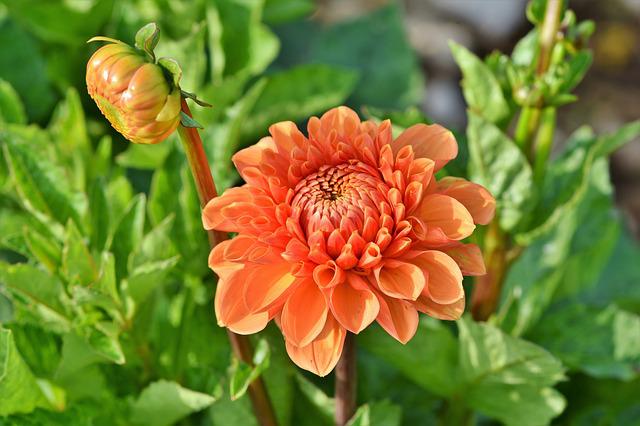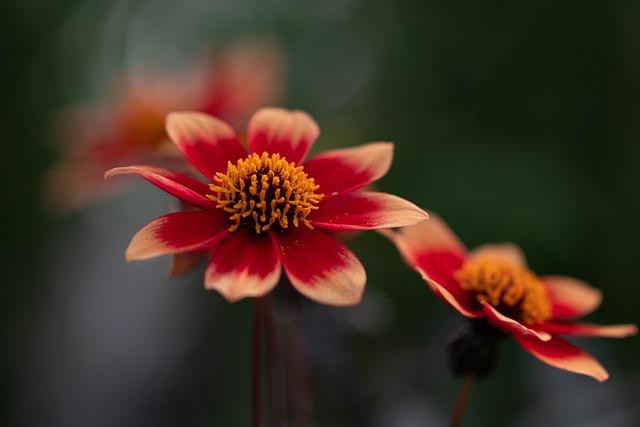Are Dahlias Poisonous? Here’s What You Need To Know

Dahlias may be beautiful, but they’re not always the most pleasant plants to be around. Most dahlias can be poisonous to humans, pets, and livestock – meaning you might want to steer clear if you have any of these creatures in your garden. This blog is for all those curious who want to know if dahlia is poisonous and what the symptoms might be. Furthermore, it provides information on what dahlias contain that can make them poisonous and how to identify symptoms in a pet or livestock if dahlias have poisoned them. So whether you’re a gardener planning to plant dahlias in your garden or care for livestock that interacts with them, this blog is essential reading!
Table of Contents
Are Dahlias Poisonous to Humans?
Dahlias may cause skin irritation, but they are not poisonous to humans. If ingested, dahlias may have a laxative effect on people and can be toxic if consumed in large quantities. There have been no recorded cases of human poisoning from dahlia petals or flowers so far. So, if you’re considering adding dahlias to your garden, read up on the plant first to ensure it is safe for you and your loved ones.
Is It Safe to Eat a Dahlia Flower?
There’s no need to be scared of dahlias! Yes, they contain toxins, but cooked dahlia flowers are perfectly safe to eat. The toxins are only present if the dahlia flower is raw or uncooked. So, if you’re planning on eating a dahlia flower, cook it before consuming it. And make sure to wash the plant thoroughly before consumption to reduce any potential health risks associated with eating a raw dahlia flower.
Are Dahlias Poisonous To Your Pets?
Dahlias are a popular flower to grow, and for a good reason – they look beautiful. But remember that these flowers are poisonous to pets – even small animals like rabbits and guinea pigs can be harmed by consuming dahlias. Always keep plants away from animals and children as well – plants can contain harmful chemicals that could be dangerous if ingested accidentally. Even though this flower isn’t as dangerous as some other plants, it will still make your pet feel sick and cause mild skin irritation.
Are Dahlias Poisonous To Livestock?
As dahlias can be poisonous to livestock in a number of ways. The most common way they are poisonous is by ingestion, and symptoms of poisoning typically show up within a few hours after the animal has eaten them.
Other ways that Dahlias may be toxic to livestock include contact with the sap of flowers, injection into the flesh, and inhaling vapors from the flowerheads.
What Are The Symptoms Of Dahlia Poisoning?
Dahlia plants probably won’t kill your animals, but they might get sick or have other symptoms that make them feel bad. Some of these signs are:
- Diarrhea– dahlias may cause food poisoning and diarrhea, leading to dehydration. Dalhia toxicity occurs when the leaves are eaten by livestock or pets; overfed chickens suffer from methane gas buildup in their intestines.
- Vomiting- similar symptoms to stomach upset that leads to vomiting, which may lead to dehydration
- Dehydration- most symptoms of dahlia poisoning mimic those seen with varied types of gastrointestinal illness. In addition to vomiting and diarrhea, nausea may also occur.
- Nausea– similar symptoms to food poisoning that lead to nausea, which can be present in watery or oily forms depending on the amount consumed by livestock. Some cases are more severe than others; feedlots may require immediate veterinary attention for treatment, whereas some equine clinics suggest bed rest.
- Drowsiness– Dalhia poisoning can also cause drowsiness. Some plants also produce hallucinogenic drugs that affect the central nervous system of livestock.
- Skin Blisters- Symptoms vary, but skin blisters and droplets on the manure indicate a horse has consumed dahlias.
- Labored Breathing – some cases of dahlias poisonings are more severe than others but share similar symptoms with other gastrointestinal illnesses such as gastroenteritis or colic. Therefore several treatment options exist when dealing with poisoning.
- Itching- Skin irritation is the only symptom that suggests a horse has consumed dahlias where toxicity may be present.
- Mild Dermatitis– similar symptoms to skin irritation in cases of dahlia poisoning where toxicity has been determined
- Abdominal Pain– similar symptoms to above but experienced in a different part of the digestive tract; diarrhea and vomiting can cause abdominal pain.
- Abdominal Shaking– this symptom is only present in horses that have already died from dahlia poisoning where they could not receive veterinary treatment quickly enough to prevent its consequences.

What Do Dahlias Contain That Can Make Them Poisonous?
You should know that the Dahlia plant’s leaves and tubers contain a phototoxic polyacetylene chemical. This chemical can make the skin itch when the plant is handled in direct sunlight.
What to Do If My Pet Got Poisoned by Dahlias?
If your pet got poisoned by dahlias, here are a few steps you should take to help them get better as quickly as possible. While there is no guarantee they will make a full recovery, taking these steps will help minimize the damage and ensure the safety of your pet:
- If your pet got poisoned by dahlias, the first thing you should do is call your veterinarian.
- If you can’t reach a veterinarian, administer activated charcoal as soon as possible. This will help trap any poison that may have been ingested and reduce the potential for further damage to your pet’s system.
- If there was direct contact with the plant – for example, if your pet ingested any of the leaves – rinse them off immediately with water and flush their system several times with fresh water.
- If there was indirect exposure – for example, if they were in proximity to where the plants were growing, clean up all contaminated areas on surfaces and floors. Remove all grasses/herbs nearby, and seal openings in pet-friendly rooms (pet doors and windows). Seek advice from a pesticide applicator about safe adjuvants.
Frequently Asked Questions
Are Dahlias Edible?
The flowers and tubers of dahlias can all be eaten. The soil and conditions in which they were grown can significantly affect how they taste and feel. They may not be the best choice if you’re looking for a tasty vegetable. Dahlias are members of the lily family; their flavor is more toward the floral side. Additionally, dahlias contain high levels of sugar, which can make them unappetizing to some people. If you decide to try them out, prepare them well by boiling or steaming them until they become soft enough to eat.
What Does Dahlia Taste Like?
There are many tastes, from water chestnut to spicy apple to even carrot. The taste of dahlia tubers changes as they get older. When they are first picked, they are crisp and have a taste similar to celery. At this stage, there are often also spicy or bitter tastes. Some inulin changes into fructose as the tubers age, making them sweeter.
Conclusion
Are dahlias poisonous to humans? As with any plant, it is important to be aware of the potential toxicity of dahlias before eating them. Dahlias are a genus of plants that includes many ornamental flowers. While all dahlias are poisonous to some degree, some varieties contain higher levels of toxins that can harm human health. For example, dahlia mirabilis contains poisonous alkaloids that can cause vomiting and diarrhea. So, if you’re thinking of trying out this beautiful flower for the first time, make sure you know the potential risks and consult a healthcare professional before consumption. In addition, what does dahlia taste like? Well, most varieties have a slightly sweet taste and can be eaten as part of a vegetable dish or as an occasional snack.
